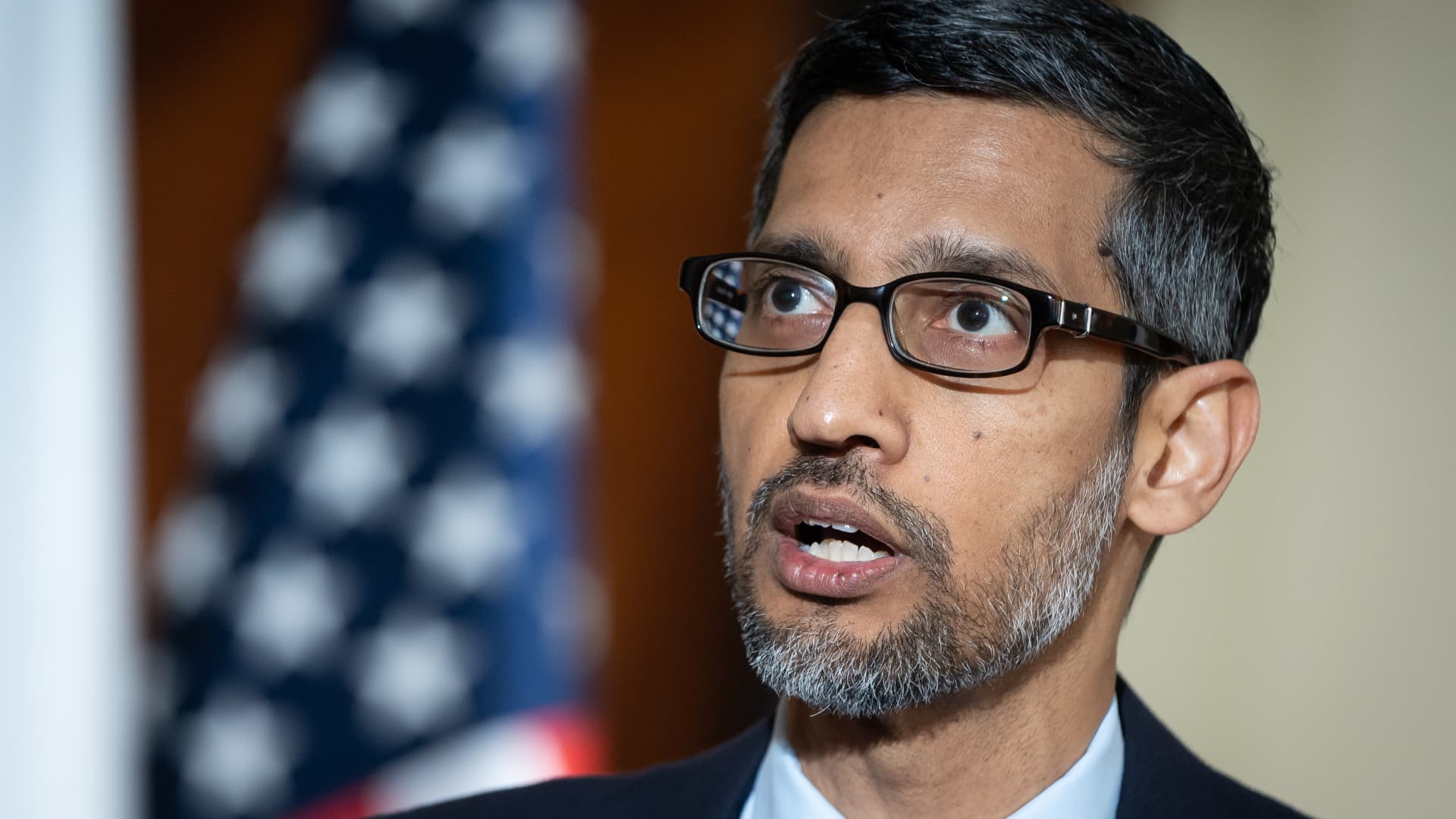Google will delete location history for visits to abortion clinics
Sundar Pichai, CEO of Google
Anindito Mukherjee | Bloomberg | Getty Images
Google said Friday night it would work to quickly remove the location history of people visiting abortion and other medical sites following the Supreme Court’s overturning of the case. Roe v. Wade last week.
“Today, we’re announcing that if our systems identify that someone has visited one of these locations, we will remove those Location History entries shortly after their visit,” wrote Jen Fitzpatrick, vice president. Senior President of Core Systems and Experiences at Google, in a blog post.
Fitzpatrick noted that visits to places like counseling centers, domestic violence shelters, abortion clinics and fertility centers “can be particularly personal.” Alphabet, Google’s parent company, owns popular devices and data services, including Android, Fitbit, Search, and Google Maps. It has become a bigger concern since the Supreme Court ruling, due to uncertainty over whether sensitive data could be used to target what is now potentially criminal activity.
Google’s message reads: “Fitbit users who have chosen to track their menstrual cycles in the app can currently delete menstruation logs one at a time, and we will be rolling out updates that allow users to delete multiple logs. at a time.”
The ruling by the nation’s highest court overturned nearly 50 years of legal precedent by reversing its initial view that women have a constitutional right to abortion. For weeks, Google and other tech companies have avoided answering questions from the media and lawmakers about their data storage and practices, and how they will comply with potential requests from law enforcement.
Google, which emailed employees with resources for its own employees as part of the decision, also faced questions about its search results in addition to data privacy.
Even before the ruling became official, lawmakers called on Google and the Federal Trade Commission to ensure data protection for online consumers seeking care should the landmark ruling be overturned.
In May, a group of 42 Democratic lawmakers urged Google CEO Sundar Pichai in a letter to stop collecting and retaining unnecessary or non-aggregated location data that could be used to identify people seeking abortions.
Google’s Friday message did not specify how it would respond to potential requests from law enforcement. Instead, the company said it would “continue to oppose requests that are overbroad or otherwise legally objectionable.”
Google also said the responsibility is shared by many institutions.
“As these issues apply to healthcare providers, telecommunications companies, banks, technology platforms and many more, we know that privacy cannot be left to individual companies alone. or to states acting individually,” the message read.
LOOK: The Roe v. Wade sows confusion throughout the country


Comments are closed.